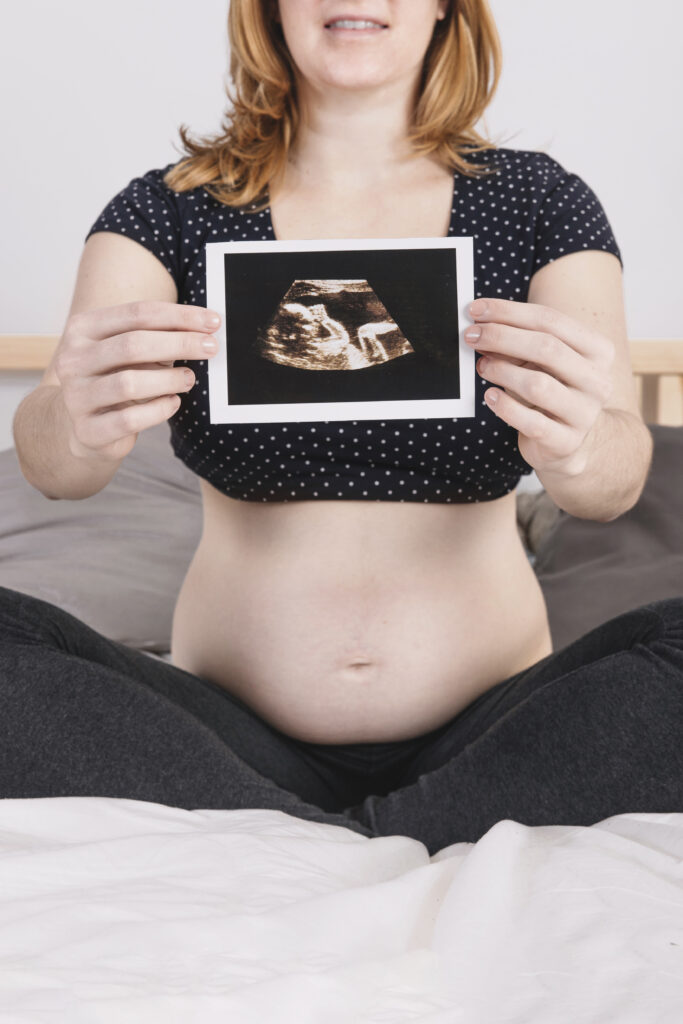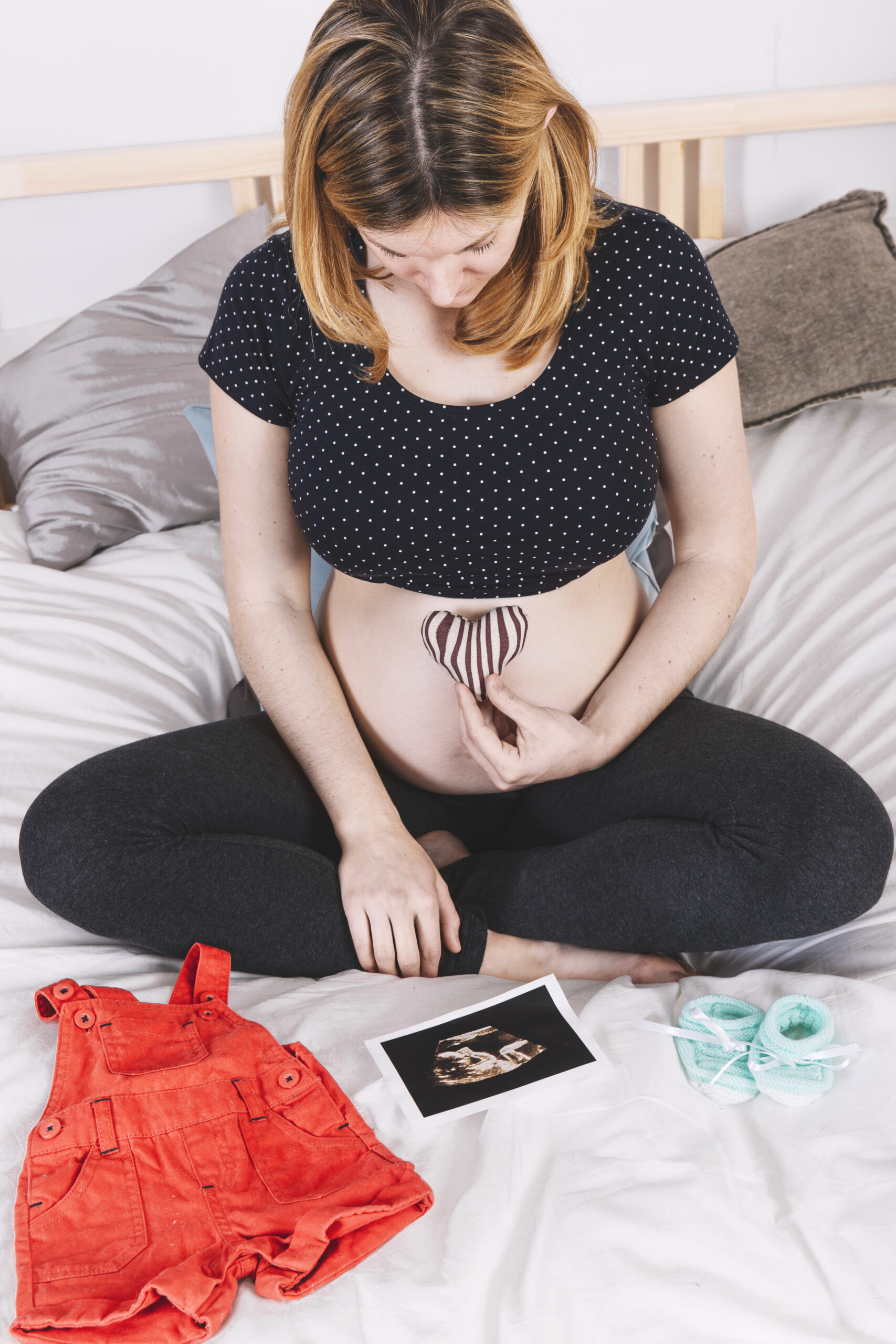How to Know if You’re Pregnant: Recognizing Early Signs and Symptoms
Learn how to recognize the early signs of pregnancy. This guide covers the most common symptoms, how to identify them, and when to consult a doctor for confirmation.
The first few weeks of pregnancy can bring about a whirlwind of emotions, especially if you’re uncertain about whether or not you’re pregnant. Many women begin to notice subtle changes in their body, but knowing how to interpret these signs can sometimes be confusing. From fatigue to nausea, and even changes in mood or appetite, the body provides a wide range of early pregnancy indicators.
This comprehensive guide will walk you through how to recognize the early signs of pregnancy, explain what these symptoms mean, and help you determine when it might be time to take a pregnancy test or consult a healthcare provider.
By the end of this article, you’ll have a clear understanding of what to look for in the early days of pregnancy, how your body responds to the changes, and the steps you can take to confirm your pregnancy.
What Happens to Your Body in Early Pregnancy?
Before diving into specific symptoms, it’s important to understand what’s happening inside your body in the early stages of pregnancy. Pregnancy begins when a sperm fertilizes an egg, which then implants into the lining of the uterus. This process triggers hormonal changes that support the development of the embryo, and it’s these hormonal shifts that cause most of the early symptoms.
- Implantation: After fertilization, the fertilized egg travels through the fallopian tube and attaches to the uterine wall. This process, known as implantation, typically happens a week after conception. Some women may experience light spotting, also called implantation bleeding, during this time.
- Hormonal Changes: The body begins to produce more hormones, especially human chorionic gonadotropin (hCG), estrogen, and progesterone. These hormones play a critical role in maintaining the pregnancy, and they are responsible for many of the early pregnancy symptoms you may experience.
- Increased Blood Volume: To support the growing embryo, your body starts to produce more blood. This increase in blood volume can contribute to feelings of fatigue, as your heart works harder to pump the extra blood throughout your body.
Understanding these foundational changes helps explain why your body behaves the way it does in the early days and weeks of pregnancy.
Early Signs and Symptoms of Pregnancy

Now that you know what’s happening internally, let’s explore the early signs and symptoms of pregnancy. Every woman’s experience is different, and symptoms can vary widely in terms of intensity and timing. However, there are a few common signs that many women experience in the first weeks after conception.
1. Missed Period
One of the earliest and most common signs of pregnancy is a missed period. For women with regular menstrual cycles, a missed period is often the first noticeable sign that something has changed. However, it’s important to keep in mind that a missed period doesn’t always mean pregnancy. Factors such as stress, illness, changes in diet, or exercise routines can also cause irregularities in your cycle.
If your period is consistently regular, and you suddenly miss one, it’s a good idea to consider taking a pregnancy test. If you have an irregular cycle, it may be harder to pinpoint when to expect your period, so you’ll want to rely on other early signs of pregnancy as well.
2. Fatigue and Exhaustion
Many women report feeling unusually tired in the early stages of pregnancy. The body is working hard to adjust to the hormonal changes and the increased blood volume, which can leave you feeling exhausted. This fatigue is primarily caused by increased levels of progesterone, a hormone that helps support the pregnancy but can also make you feel sleepy.
Fatigue in early pregnancy can feel like a deep, unshakable exhaustion, even after a full night’s rest. You may find yourself needing naps during the day or feeling more drained after everyday activities. The best remedy is to listen to your body and get plenty of rest.
3. Nausea and Morning Sickness
Nausea, often referred to as morning sickness, is one of the hallmark symptoms of early pregnancy. While it’s called morning sickness, nausea can occur at any time of the day or night. For some women, nausea is mild, while for others, it can be quite severe and may lead to vomiting.
Morning sickness typically begins a few weeks into pregnancy, but some women may experience it earlier. The exact cause isn’t fully understood, but it is believed to be related to rising hormone levels, particularly hCG and estrogen. Eating small, frequent meals and avoiding triggers like strong smells can help manage nausea.
4. Breast Tenderness and Changes
Changes in your breasts are another common early sign of pregnancy. Hormonal shifts cause the breasts to become more sensitive, swollen, or sore. Some women may also notice that their nipples become darker or more prominent. These changes are the body’s way of preparing for breastfeeding.
In early pregnancy, breast tenderness can feel similar to the discomfort you might experience before your period, but it tends to be more pronounced. As your pregnancy progresses, the tenderness may subside, but the physical changes will continue.
5. Frequent Urination
As your body adjusts to pregnancy, you may find yourself needing to urinate more often than usual. This is partly due to the increased blood volume and the kidneys working harder to process the extra fluids. In addition, the growing uterus begins to put pressure on your bladder, leading to more frequent trips to the bathroom.
Frequent urination is a common early pregnancy symptom, and it usually continues throughout the pregnancy. Staying hydrated is important, so even if you’re going to the bathroom more often, be sure to drink plenty of water.
6. Mood Swings
Pregnancy hormones can cause fluctuations in your mood, similar to what some women experience during their menstrual cycle. You might feel more emotional or find that you’re more easily irritated. It’s completely normal to feel a range of emotions during early pregnancy, from excitement to anxiety.
These mood swings are largely due to hormonal changes, but they can also be influenced by physical discomfort, fatigue, and the overall stress of adjusting to the idea of being pregnant. Practicing mindfulness, relaxation techniques, or simply talking to a loved one can help manage these emotional shifts.
7. Food Cravings and Aversions
Changes in appetite are common in early pregnancy. Some women may develop strong cravings for specific foods, while others may find that they can no longer tolerate certain foods or smells. These food cravings and aversions are believed to be linked to hormonal changes.
For example, you might suddenly have a strong desire for salty or sour foods, or you may find that foods you normally enjoy, like coffee or certain meats, make you feel nauseous. Paying attention to your body’s signals and eating balanced meals can help you manage these changes in appetite.
8. Light Spotting and Cramping
Some women experience light spotting or cramping in the early stages of pregnancy. This spotting, sometimes referred to as implantation bleeding, occurs when the fertilized egg attaches itself to the lining of the uterus. It usually happens around the time your period would normally be due, which can make it confusing to distinguish between early pregnancy and your regular menstrual cycle.
Cramping during early pregnancy is typically mild and short-lived, but if you experience severe pain or heavy bleeding, it’s important to consult a healthcare provider to rule out any complications.
When Should You Take a Pregnancy Test?
Understanding when to take a pregnancy test is an important step in confirming whether or not you’re pregnant. Home pregnancy tests work by detecting the presence of hCG in your urine. While some tests claim to provide results before a missed period, it’s usually best to wait until after your period is late for the most accurate result.
The amount of hCG in your body increases rapidly in the early stages of pregnancy, but it may not be high enough to detect in the first few days. If you test too early, you might get a false negative, even if you are pregnant.
- Best Time to Test: Ideally, you should wait until at least the first day of your missed period to take a pregnancy test. If your cycle is irregular, you may want to wait a few extra days before testing.
- First-Morning Urine: For the most accurate results, take the test first thing in the morning when your urine is most concentrated.
Other Factors That May Affect Pregnancy Symptoms
While the symptoms listed above are common in early pregnancy, it’s important to note that they can also be caused by other factors, such as hormonal imbalances, stress, or illness. If you suspect you’re pregnant but aren’t experiencing all of the typical symptoms, don’t worry. Every woman’s body reacts differently to pregnancy, and some may not experience many symptoms at all.
- PMS Symptoms: Many early pregnancy symptoms, such as breast tenderness, mood swings, and fatigue, are similar to premenstrual syndrome (PMS). This can make it difficult to determine whether you’re pregnant or simply experiencing PMS.
- Stress: High levels of stress can also affect your menstrual cycle and cause symptoms that mimic early pregnancy, such as fatigue and nausea. If you’re feeling stressed or anxious, try relaxation techniques like deep breathing, meditation, or light exercise to help
Internal Links
To further explore specific topics covered in this article, check out the following sections on our website:
- Pregnancy Symptoms: Learn more about the various physical changes you may experience in early pregnancy.
- Pregnancy Testing: Discover when and how to take a pregnancy test for accurate results.
- Postpartum: Understand what happens after birth, including emotional and physical recovery.
External Links
For more detailed information on early pregnancy symptoms, you can visit these reputable websites:
- American Pregnancy Association: Comprehensive insights on pregnancy health, including signs and symptoms.
- Planned Parenthood: Pregnancy Testing: Learn about when and how to take a pregnancy test from a trusted organization.
- BabyCenter: Early Pregnancy Signs: A helpful guide to early pregnancy symptoms and what to expect.
